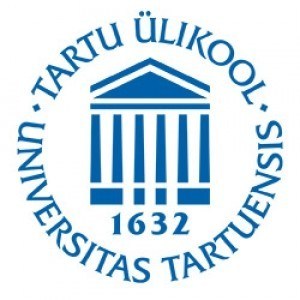Photos of university / #unitartu
The Master's degree in Semiotics at the University of Tartu offers a comprehensive and interdisciplinary exploration of signs, symbols, and meaning across various cultural, social, and media contexts. This program is designed for students passionate about understanding how meaning is constructed, interpreted, and communicated in different forms of human interaction, including language, art, media, literature, and technology. Throughout the course of study, students will engage with the foundational theories of semiotics developed by key thinkers such as Ferdinand de Saussure, Charles Sanders Peirce, and Roland Barthes, while also exploring contemporary developments in the field. The curriculum emphasizes both theoretical and practical approaches, providing students with skills to analyze texts, images, and cultural phenomena critically and creatively. Students will have opportunities to apply semiotic analysis to real-world issues, including media studies, advertising, digital culture, and intercultural communication. The program encourages interdisciplinary thinking, integrating insights from philosophy, linguistics, anthropology, and cultural studies. With small class sizes and close supervision by experienced faculty, students will benefit from a personalized learning environment that fosters critical thinking, research skills, and academic writing excellence. Graduates of the program will be well-equipped for careers in academia, research, media, publishing, cultural management, and consulting, where understanding the role of signs and meaning is essential. The University of Tartu’s semiotics program combines rigorous academic training with practical application, preparing students to analyze and interpret the complex semiotic landscape of today’s interconnected world. The program is ideally suited for those who wish to deepen their understanding of human communication and culture through a detailed study of signs, symbols, and their meanings across different contexts and disciplines.
Description of the Program for the Web Page of the Semiotics Degree at the University of Tartu
The Master’s degree in Semiotics at the University of Tartu offers students a comprehensive exploration of the study of signs, symbols, and meaning-making processes across various cultural, linguistic, and media contexts. This program is designed for students interested in understanding how humans interpret and produce meaning through language, visual images, gestures, and other sign systems. Throughout their studies, students will delve into contemporary theories of semiotics alongside historical perspectives, gaining critical insights into how communication shapes individual and collective understanding in society.
The curriculum covers a wide range of topics, including semiotic theory, linguistic signs, visual culture, media semiotics, cognitive semiotics, and digital communication. Students will analyze semiotic practices in different cultural domains such as literature, film, advertising, and social media, developing the ability to interpret complex sign systems and their influence on cultural and social processes. The program emphasizes both theoretical foundations and practical applications, encouraging students to conduct original research, engage in interdisciplinary approaches, and develop analytical skills essential for careers in academia, media, arts, communication, and cultural analysis.
Courses are taught by experienced faculty members who are experts in semiotics, linguistics, philosophy, and cultural studies. The program fosters an international and collaborative learning environment, inviting students from diverse backgrounds to exchange ideas and perspectives. In addition to coursework, students participate in seminars, workshops, and research projects, culminating in the completion of a master’s thesis that contributes to the field of semiotics.
Graduates of the program will acquire advanced analytical skills, a deep understanding of semiotic theories and their applications, and the ability to critically assess communication practices in a variety of contexts. This prepares them for further academic research or professional roles in fields such as cultural analysis, media and communication industries, education, arts management, and digital content creation. The University of Tartu’s semiotics program emphasizes a multidisciplinary approach, ensuring that students are well-equipped to interpret the signs and symbols that shape human experience in an increasingly interconnected world.
Admission requirements for the Bachelor's degree in Semiotics at the University of Tartu typically include a completed application form, secondary education certificate, and proof of proficiency in English (such as IELTS or TOEFL scores). Applicants are usually required to submit a motivation letter explaining their interest in semiotics and related fields. Prior academic performance, especially in languages, social sciences, and humanities, is considered. Some applicants may need to participate in an interview or assessment to demonstrate their analytical and interpretative skills. The program also favors candidates with good written and verbal communication skills, critical thinking abilities, and an interest in cultural analysis, visual communication, and media studies. International students must meet additional visa and health insurance requirements. The selection process is competitive, with the university evaluating both academic achievements and motivation. Applicants are advised to review specific instructions available on the university’s official website and ensure all documentation is submitted by the specified deadline. No specific prerequisite coursework is mandatory, but a background in linguistics, philosophy, or arts can be advantageous. The program aims to develop students' analytical skills, theoretical knowledge, and practical application in fields like media, communication, and cultural studies. The requirements may be periodically updated, so prospective students should consult the official university admissions page for the most current information.
The financing of the Semiotics program at the University of Tartu is primarily based on a combination of tuition fees, governmental funding, and other sources of financial support. Students admitted to the program have the option to pay tuition fees if they are international students or if they are not covered by any scholarship or grant. The university offers a range of scholarships and financial aid options that can help reduce the financial burden on students. These scholarships are awarded based on academic excellence, need, or specific criteria set by the university or external organizations.
The Estonian government provides funding to the University of Tartu through national budget allocations, which support the university's operations and certain research projects within the Semiotics program. This funding helps maintain high-quality teaching, research, and academic resources, ensuring that students receive a comprehensive and up-to-date education in semiotics and related fields. Additionally, the university actively seeks partnerships with private companies, cultural institutions, and international organizations to supplement its funding sources and create opportunities for research grants, internships, and project-based learning.
Students enrolled in the program may also have access to external funding sources, such as Erasmus+ grants for mobility and exchange programs within Europe. These initiatives are designed to enhance students’ academic experience and international exposure. The university encourages students to explore various funding opportunities and provides guidance on how to apply for them.
Research activities within the Semiotics program are often supported by specialized grants allocated by the university or the Estonian Research Council. These grants enable students and faculty to participate in research projects, conferences, and publications, boosting the program’s academic reputation and providing additional financial resources. The university also promotes active fundraising and development campaigns to ensure the sustainability and continuous improvement of its programs.
Overall, the financing structure of the Semiotics program ensures a balanced approach combining public funding, institutional resources, scholarships, and external grants, aiming to provide accessible and high-quality education. The university’s commitment to attracting diverse funding sources helps to sustain the program’s activities and enhances the overall learning environment for students pursuing studies in semiotics at the University of Tartu.
Semiotics at the University of Tartu is a multidisciplinary programme that explores the study of signs, symbols, and meaning-making processes across various cultural and social contexts. The programme provides students with a comprehensive understanding of how meaning is produced, transmitted, and interpreted in different media, including language, visual arts, literature, advertising, and digital communication. It combines theories from linguistics, philosophy, anthropology, art history, and media studies to offer a holistic approach to the analysis of signs and their functions within society.
Students enrolling in the Semiotics programme at Tartu are introduced to key concepts such as sign systems, meaning theory, and the relationship between signs and reality. They learn about the historical development of semiotic thought, from early linguistics and structuralism to contemporary post-structuralist approaches. Practical coursework often involves analyzing texts, images, and cultural phenomena to uncover underlying semiotic mechanisms and interpretative strategies used in various contexts. The programme emphasizes critical thinking skills and encourages students to engage with current debates on media globalization, digital culture, and cultural identity.
The curriculum typically includes courses in semiotic theory, cultural analysis, media studies, philosophy of language, and research methods. Students also have opportunities to participate in seminars, workshops, and research projects, allowing them to develop their analytical skills and contribute to scholarly discourse. The programme is tailored toward preparing graduates for careers in academia, cultural institutions, media organizations, advertising agencies, and international organizations. It also fosters interdisciplinary research skills suitable for work in fields such as cultural policy, education, and digital communication.
The University of Tartu's semiotics programme benefits from strong academic staff with expertise in various semiotic modalities and cultural studies. It encourages a collaborative learning environment, with students engaging in discussions, presentations, and collaborative research. The university’s strategic location in Estonia provides unique access to Baltic and Northern European cultural contexts, enriching the students’ educational experience. Graduates of the programme are equipped with sophisticated analytical capabilities and cultural awareness, enabling them to interpret complex signs and symbols effectively in a globalized world.








